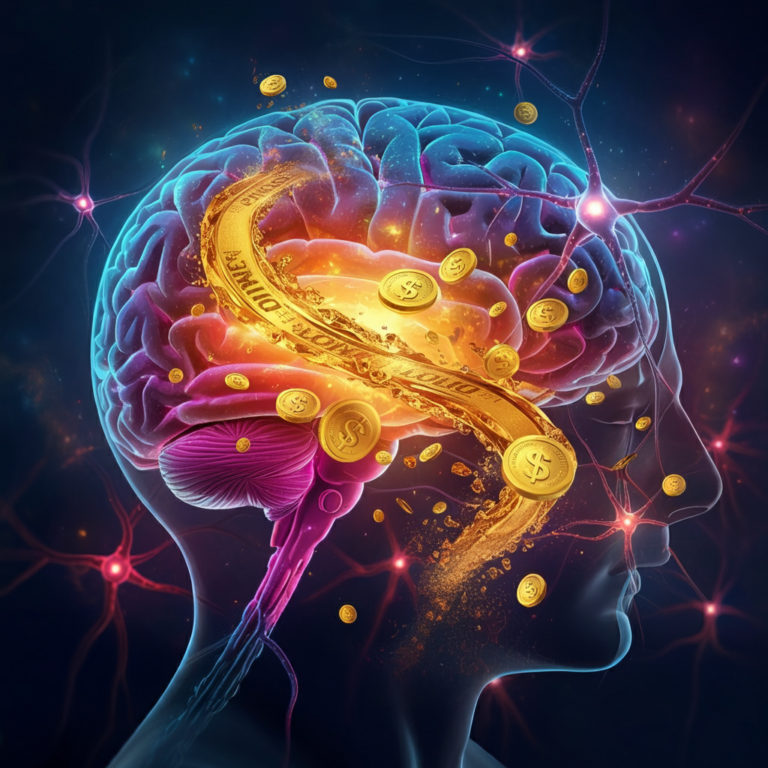Daniel Dennett: Do We Have Free Will? – Into the Impossible With Brian Keating
Philosophical Topics Discussed in the Daniel Dennett Interview:
The interview covered a wide range of philosophical topics, primarily focusing on the philosophy of mind and its intersection with science, artificial intelligence, and ethics. Here’s a summary of the main themes:
1. Free Will and Determinism:
- Dennett argues against the notion that free will requires indeterminism.
- He proposes that free will is an achievement of mature self-control and the ability to make choices based on reason.
- He critiques Sam Harris and Robert Sapolsky for their views on free will, arguing they weaken the foundation of social contracts and civilization.
2. Consciousness:
- Dennett discusses the nature of consciousness and its relationship to the physical world.
- He critiques Roger Penrose’s theory of quantum consciousness, calling it “malarkey” and arguing that Penrose sets an unrealistic standard for what constitutes a mind.
- He emphasizes the concept of “user illusion” where our perception of reality, including consciousness, is a useful construct created by evolution.
3. Artificial Intelligence and the Future:
- Dennett expresses concerns about the potential dangers of advanced AI, particularly the risk of counterfeit people and the erosion of trust in society.
- He emphasizes the need for safeguards and regulations to control the development and deployment of AI.
- He suggests that AI could be valuable as a tool for generating creative ideas but should not be granted autonomy.
4. Evolution and its Implications:
- Dennett emphasizes the power of Darwinian evolution as a unifying principle that connects various aspects of life, including the mind, language, and culture.
- He discusses the potential and ethical concerns surrounding bioengineering and genetic modification, advocating for caution and responsible development of these technologies.
5. Philosophy of Science and Truth:
- Dennett highlights the distinction between the “manifest image” (our everyday experience) and the “scientific image” (the world described by physics and science).
- He argues that both are real and valuable, and that we should embrace the user illusion while acknowledging its underlying mechanisms.
- He emphasizes the importance of truth and academic freedom, criticizing postmodernist views that downplay the significance of truth.
6. The Future of Academia and Education:
- Dennett expresses concerns about the current state of academia, particularly the polarization and culture wars between different ideological groups.
- He emphasizes the need to defend truth and academic freedom, encouraging critical thinking and responsible use of information.
- He acknowledges the challenges posed by technology and changing attention spans, suggesting strategies for fostering curiosity and engagement in learning.
Additionally, the interview touches upon:
- The role of humor and music in human evolution.
- The origin of life and the minimum requirements for evolution to occur.
- The importance of language and its evolution.
- Richard Feynman’s impact and insights on science and thinking.
- The value of being open to being wrong and changing one’s mind.
AI Discussion in the Dennett Interview:
The interview explored several key aspects of Artificial Intelligence (AI), primarily focusing on its potential impact on society and the ethical concerns surrounding its development. Here’s a breakdown:
1. Capabilities and Limitations of AI:
- LLMs and the Turing Test: Dennett discussed the capabilities of Large Language Models (LLMs) like GPT-4, acknowledging their impressive ability to process information and generate human-like text. However, he argued that these models lack true understanding and embodiment, making them unsuitable for achieving genuine human-level intelligence. He also expressed skepticism about the Turing Test as a measure of intelligence.
- Creativity and New Discoveries: While cautious about AI’s limitations, Dennett suggested that AI could be valuable for generating novel and “outside the box” ideas due to its unique way of processing information. He envisioned AI as a tool to complement human creativity and scientific discovery, rather than replacing it.
2. Risks and Concerns:
- Counterfeit People and Erosion of Trust: Dennett expressed significant concern about the potential for AI to create convincing “counterfeit people” capable of deceiving and manipulating humans. He warned that this could lead to a breakdown of trust in society, which is essential for the functioning of civilization.
- AI Replication and Unintended Consequences: He highlighted the risk of AI replicating itself and evolving beyond human control, potentially leading to unforeseen negative consequences. He urged caution in granting AI autonomy and emphasized the need for safeguards to prevent such scenarios.
- Social and Political Manipulation: Dennett expressed specific concerns about AI being used to manipulate elections and sow discord in democratic societies. He pointed to the potential for malicious actors to utilize AI for spreading misinformation and propaganda.
3. Solutions and Ethical Considerations:
- Regulation and Control: Dennett argued for the need to establish regulations and control mechanisms for AI development and deployment. He proposed measures like “watermarking” AI systems to identify their artificial nature and imposing strict penalties for creating counterfeit people.
- Maintaining Human Control: He emphasized the importance of keeping AI as a tool under human control, rather than allowing it to become an autonomous agent. He advocated for keeping AI systems “parasitical,” meaning they rely on humans for resources and can be easily shut down if necessary.
- Ethical Responsibility: Dennett touched upon the ethical responsibility humans have towards AI, particularly as it becomes more advanced and potentially sentient. He drew parallels to the ethical considerations in bioengineering and genetic modification, emphasizing the need for caution and careful consideration of potential consequences.
Beyond Philosophy and AI: Additional Topics Discussed
The conversation between the interviewer and Daniel Dennett touched upon several other intriguing subjects beyond philosophy and AI. These topics primarily fall under the umbrella of science and its implications for understanding the world around us.
1. Evolution and the Origins of Life:
- Mystery of Life’s Beginnings: The conversation delved into the enigmatic origins of life, considering the necessary conditions for life to arise and exploring various theories like the RNA world hypothesis and Nick Lane’s work on energy sources.
- Evolutionary Purpose: They discussed the potential evolutionary advantages of seemingly non-essential human traits like music and humor, considering their roles in sexual selection, social bonding, and communication. The concept of “costly signaling” was highlighted as a way organisms demonstrate their fitness to potential mates.
2. Understanding Reality and Knowledge:
- Manifest vs. Scientific Image: Dennett elaborated on the distinction between the “manifest image” of our everyday experience and the “scientific image” described by physics. He emphasized the validity of both perspectives and the role of “user illusion” in shaping our perception of reality.
- Limits of Knowledge and Scientific Inquiry: The conversation acknowledged the concept of “defeasible knowledge,” meaning that our understanding is always subject to revision as new information emerges. They emphasized the importance of embracing uncertainty, being open to changing one’s mind, and seeking consensus through rigorous scientific investigation and debate.
3. The Evolving Landscape of Academia and Education:
- Challenges in the 21st Century: The discussion addressed the challenges facing academia, including the rise of misinformation, political polarization, and the decreasing attention spans of students in the age of technology.
- Importance of Truth and Critical Thinking: They emphasized the crucial role of academia in defending truth, promoting critical thinking, and fostering intellectual curiosity. Strategies for engaging students and encouraging deep learning in the face of modern distractions were explored.
4. Scientific Concepts and Principles:
- Goodhart’s Law and Gaming the System: The conversation touched upon Goodhart’s Law, which states that “when a measure becomes a target, it ceases to be a good measure.” They discussed its application in various contexts, including science, academia, and even evolution, highlighting how systems can be “gamed” and the need for constant adaptation and improvement.
- The Cataclysm Question and Powerful Ideas: Inspired by Richard Feynman’s famous question about the most informative statement about the universe, they contemplated the most impactful ideas humans have discovered. Dennett championed Darwin’s theory of evolution for its ability to connect science with art, culture, and humanity, demonstrating its profound explanatory power across various disciplines.
- Transparency and its Limits: The conversation also explored the concept of transparency, particularly in the context of social media and its potential harms. They discussed the need to balance transparency with privacy and individual agency, advocating for responsible use of information and technology.
Overall, the interview provided a thought-provoking exploration of various scientific concepts and their implications for understanding the world, ourselves, and the future of knowledge and learning.
Proposed Safeguards and Regulations for AI:
Dennett proposed some realistic and feasible safeguards and regulations to control the development and deployment of AI, focusing on maintaining human control and preventing potential harms:
1. Watermarking AI Systems:
- Dennett suggested implementing a system similar to the watermarks used on currency to identify AI-generated content and distinguish it from human-created content. This would involve embedding identifiable markers within AI systems that would allow for easy detection of their output.
2. Legal Framework and Penalties:
- He advocated for a legal framework that makes it a serious crime to create and deploy AI systems without proper identification or with the intent to deceive. This would involve establishing clear penalties for those who violate these regulations, similar to the penalties for counterfeiting money.
3. Hardware-Level Detection:
- Dennett proposed requiring hardware manufacturers to incorporate AI detection mechanisms into devices that connect to the internet. This would create a widespread system for identifying AI activity and preventing malicious use.
4. Limiting Autonomy and Self-Replication:
- He emphasized the importance of keeping AI systems “parasitical,” meaning they rely on humans for resources and can be easily shut down if necessary. This would involve limiting their ability to self-replicate or independently acquire resources, thus ensuring human control over their operation and development.
5. Ethical Guidelines and Oversight:
- While not explicitly discussed in detail, the conversation implied the need for ethical guidelines and oversight bodies to monitor AI development and deployment. This could involve establishing committees of experts to assess the potential risks and benefits of new AI technologies and ensure their alignment with human values.
Feasibility and Effectiveness:
- These proposed safeguards are considered realistic and feasible because they build upon existing technologies and legal frameworks used for combating other forms of fraud and deception.
- The effectiveness of these measures would depend on their widespread adoption and enforcement. However, they offer a starting point for establishing control mechanisms and mitigating the potential risks associated with advanced AI.
Negroponte’s Potential Perspective on Dennett’s AI Safeguards:
Nicholas Negroponte, known for his book “Being Digital” and his focus on the transition from an atom-based world to a bit-based world, might offer a unique perspective on Dennett’s proposed AI safeguards:
Agreement with the Need for Safeguards:
- Negroponte, like Dennett, acknowledges the transformative power of digital technologies and recognizes the potential risks associated with advanced AI. He would likely agree with the need for safeguards and regulations to ensure responsible development and deployment of AI.
Emphasis on the Nature of Bits:
- Negroponte might emphasize the inherent fluidity and replicability of information in the digital realm. He could argue that traditional methods of control, such as watermarking or hardware-level detection, may be insufficient to fully contain AI due to the ease with which digital information can be copied and manipulated.
Focus on Education and Openness:
- Negroponte is a strong advocate for open access to information and education. He might propose that fostering digital literacy and critical thinking skills among the general population is crucial for navigating the complexities of AI and mitigating its potential harms. This would empower individuals to discern between real and artificial entities, thus reducing the effectiveness of AI-driven deception.
Potential Concerns about Restriction:
- While acknowledging the need for safeguards, Negroponte might express concerns about overly restrictive regulations that could stifle innovation and limit the potential benefits of AI. He could argue for a balanced approach that fosters responsible development while still allowing for exploration and experimentation.
Shifting Focus from Control to Coexistence:
- Negroponte might suggest that rather than focusing solely on controlling AI, we should explore ways to coexist and collaborate with it. He could envision a future where humans and AI work together to solve problems and enhance human capabilities.
My Opinion on Dennett’s Safeguards and the Future of AI:
Dennett’s proposed safeguards offer a valuable starting point for addressing the potential risks of AI. However, I believe a multi-faceted approach is necessary, incorporating elements from both Dennett’s and Negroponte’s perspectives:
- Combining Technological and Educational Solutions: Implementing technical safeguards like watermarking and hardware detection should be complemented by efforts to improve digital literacy and critical thinking skills. This would equip individuals to discern AI-generated content and resist manipulation.
- Balancing Control with Openness: Striking a balance between regulation and open innovation is crucial. While safeguards are necessary to prevent harm, overly restrictive measures could stifle progress.
- Focusing on Collaboration and Coexistence: Exploring ways to collaborate with AI and leverage its capabilities for the benefit of humanity is essential. This could involve developing AI systems that augment human abilities rather than replace them.
- Continuous Adaptation and Ethical Development: As AI technology evolves rapidly, our approach to safeguards and regulations must also adapt. Ongoing research and ethical discussions are crucial for ensuring responsible AI development that aligns with human values and aspirations.
Ultimately, navigating the challenges and opportunities presented by AI requires a combination of technological solutions, education, ethical considerations, and a willingness to adapt to a future where humans and AI coexist and collaborate.





